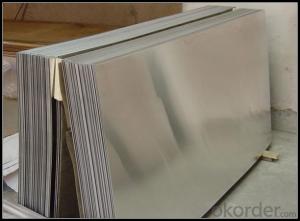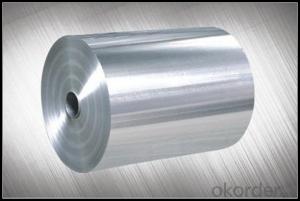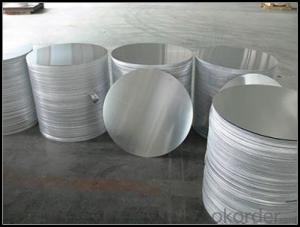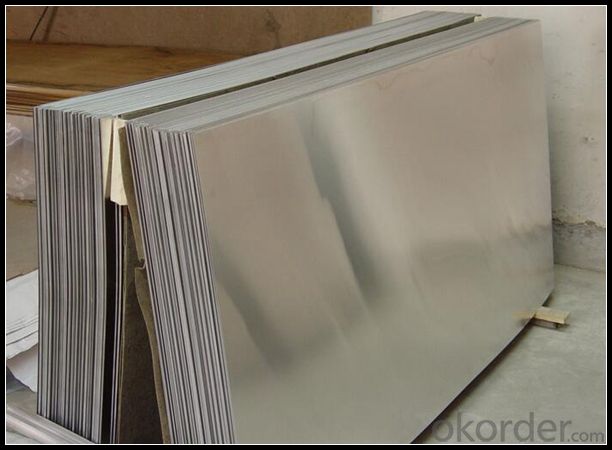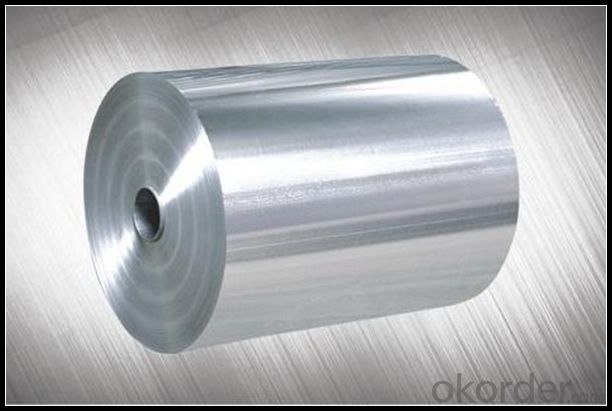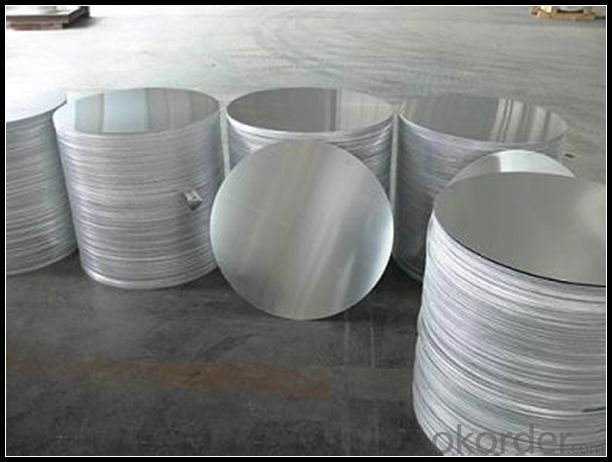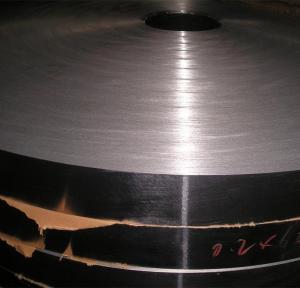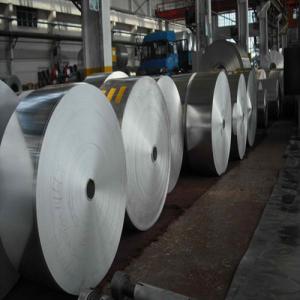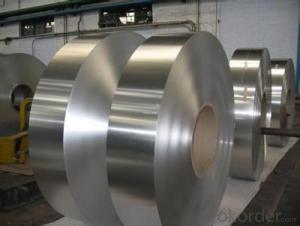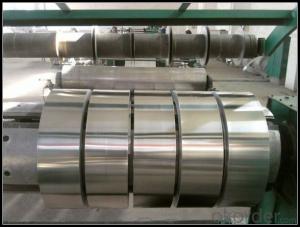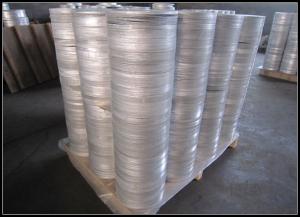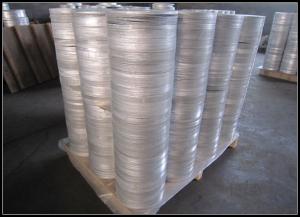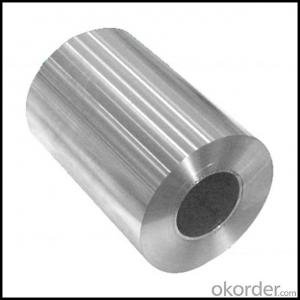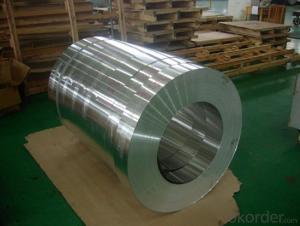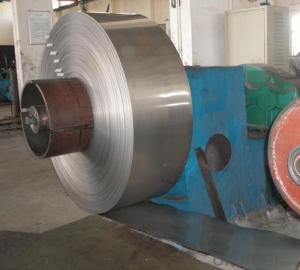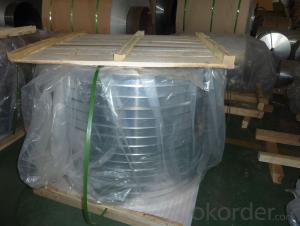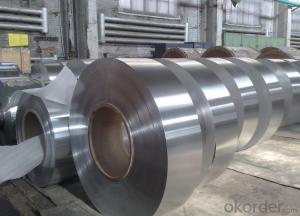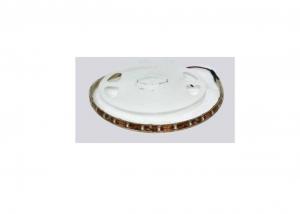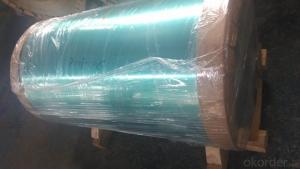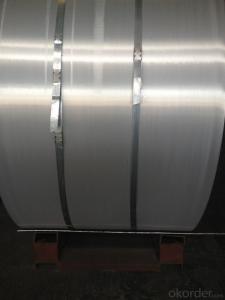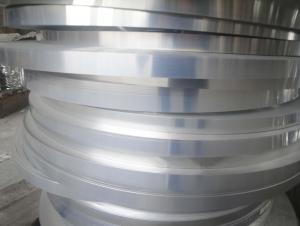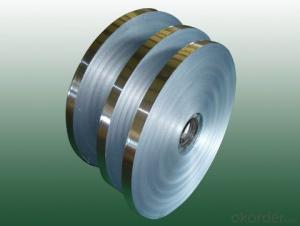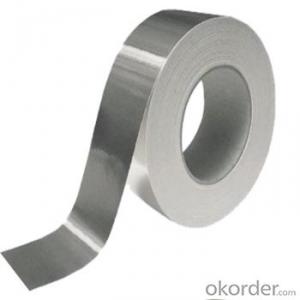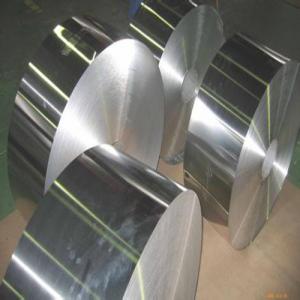Flexible Aluminum Strips for Construction and Decoration
- Loading Port:
- Tianjin
- Payment Terms:
- TT OR LC
- Min Order Qty:
- 1 m.t.
- Supply Capability:
- 4999 m.t./month
OKorder Service Pledge
OKorder Financial Service
You Might Also Like
Specification
1. Specification of Aluminum
1) Alloy | 1050, 1060,1100, 3003 3004 3105 3005 5005 5052 etc |
2) Temper | O/H12/H14/H1/H18/H32/H34/H36/H38//H111/H112/H116/H321/T6/T651/T3/T351 etc |
3) Thickness | 0.1mm to 6mm |
4) Width | 20mm to 3300mm |
5) Coil weight | 100kgs to 6 tons depends on actual requirement |
6) Core material | Aluminum alloy |
7) Coil Inner diameter | 76mm, 152mm,or as required |
2. Application of Aluminum
(1).Alumina
(2).Sulfates
(3).Niche compounds..
3. Feature of Aluminum
Aluminium alloys commonly have tensile strengths of between 70 and 700 MPa. The range for alloys used in extrusion is 150 – 300 MPa. Unlike most steel grades, aluminium does not become brittle at low temperatures. Instead, its strength increases. At high temperatures, aluminium’s strength decreases. At temperatures continuously above 100°C, strength is affected to the extent that the weakening must be taken into account.
4. Certificate:
SGS and ROHS(if client request, paid by client), MTC(plant provided), Certificate of Origin(FORM A, FORM E, CO), Bureau Veritas and SGS (if client request, paid by client), CIQS certificate
5. Image of Aluminum
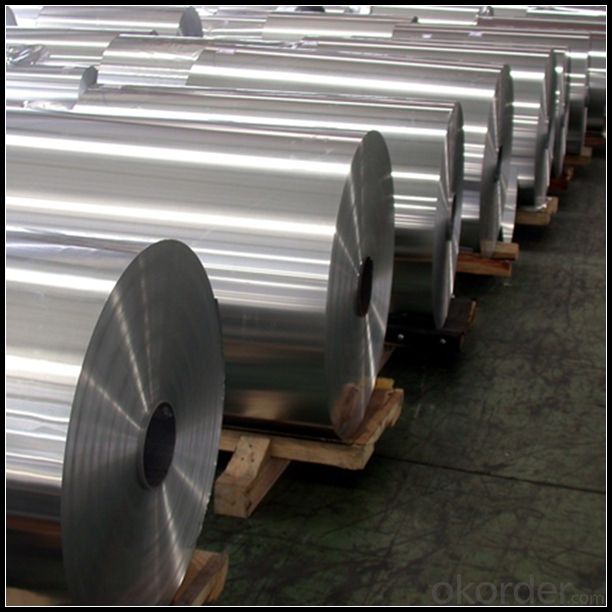
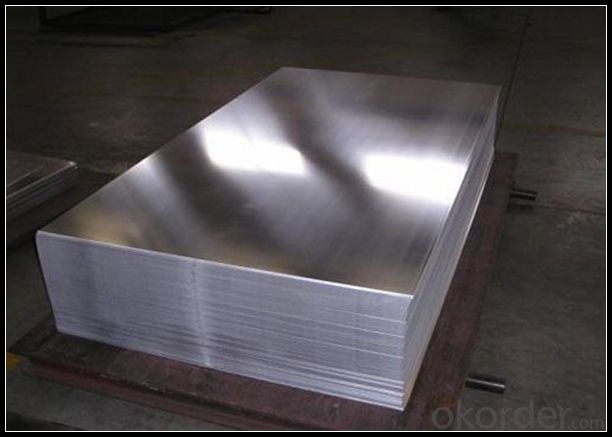
6. Our Service
1. Reply your enquiry in 24 working hours. |
2. OEM, buyer design, buyer label services provided. |
3. Exclusive and unique solution can be provide to our customer by our well traned and professional engineers and staffs. |
4. We can provide free sample for your check |
5. We have the certification of ISO 9001 |
6. Timely delivery |
7. Special discount and protection of sales area provided to our distributor. |
8. Good after-sale service. |
7. FAQ
Q: What is the produce prase? | ||||
A: Normally it would be 40days after received your deposit. | ||||
Q: Can you provide free samples? | ||||
A: Yes, free samples will be sent to you on freight at destination. | ||||
Q: Can I get your latest catalogue? | ||||
A: Yes, it will be sent to you in no time. | ||||
Q: What is the MOQ? | ||||
A: 3 tons | ||||
Q: What are your payment terms? | ||||
A: We accept L/C, D/A, D/P, T/T, West Union,etc. |
- Q: Inquiring about the durability of aluminum strips.
- <p>Aluminum strips are known for their durability. They are resistant to corrosion and weathering, making them suitable for long-term use in various environments. Their strength and light weight also contribute to their durability, allowing them to withstand significant stress without breaking. However, their longevity can be affected by factors such as the quality of the aluminum, the manufacturing process, and the specific conditions they are exposed to. Proper maintenance and handling can further enhance their durability.</p>
- Q: What gas is best for welding aluminum strip?
- If you are using the gas, liquefied gas gun can be used separately burning liquefied petroleum gas welding, then burning gas is liquefied gas, but this time need to use low temperature welding wire, such as the WEWELDING M51 with WEWELDING M51-F solder welding wire.
- Q: This question asks for a comparison of various types of aluminum siding used in construction, highlighting their unique characteristics and differences.
- <p>Aluminum siding comes in various types, each with unique properties. Interlock siding features overlapping panels for better protection against weather. Insulated siding offers thermal efficiency with a foam core. Vertical siding is known for its traditional look and is often used in commercial settings. Shake-style siding mimics the appearance of wood shakes, providing a rustic aesthetic. Soffit siding is designed for use around windows and eaves, offering a clean finish. Each type varies in terms of durability, maintenance requirements, and cost, with applications ranging from residential to commercial construction.</p>
- Q: What are the unique production techniques employed in the manufacturing of high-quality aluminum strips?
- <p>High-quality aluminum strips are produced using specialized manufacturing methods to ensure precision and consistency. Key methods include precision casting to achieve uniform thickness, continuous casting for improved material properties, and cold rolling to refine the strip's dimensions and surface finish. Annealing processes are also crucial for enhancing ductility and reducing hardness. Additionally, advanced surface treatments like anodizing or coating may be applied to improve corrosion resistance and aesthetics. Quality control measures such as strict dimensional checks and surface inspections are integral to ensuring the strips meet stringent quality standards.</p>
- Q: How to use batteries, magnets, cans of aluminum belt to make a rotating aluminum belt device, please explain
- On the left is an aluminum can top. It is on a vertical shaft and can rotate freely. On the right is a used water pen holder, the same on the vertical shaft, you can freely rotate.
- Q: Is it possible to utilize aluminum strips in the food packaging industry?
- <p>Yes, aluminum strips are commonly used in food packaging. They are valued for their excellent barrier properties against light, moisture, and gases, which help to preserve the freshness and quality of food. Aluminum's malleability also makes it easy to form into various shapes and sizes for different packaging needs. Additionally, aluminum is recyclable, contributing to sustainability efforts in the food industry.</p>
- Q: Is it suitable to use aluminum strips for roofing in areas with high temperatures?
- <p>Yes, aluminum strips can be used for roofing in hot climates. Aluminum is a lightweight, durable, and corrosion-resistant material that can withstand high temperatures without degrading. It reflects heat, reducing the amount of heat absorbed by the roof, which can help keep the interior of a building cooler. Additionally, aluminum's resistance to rust and corrosion makes it an ideal choice for climates with high humidity or where there is a risk of saltwater corrosion. However, it's important to ensure proper installation and ventilation to maximize its performance and longevity.</p>
- Q: This question asks for a comparison between aluminum strips and other roofing materials in terms of their characteristics and performance.
- <p>Aluminum strips are lightweight and highly durable, offering excellent resistance to corrosion and weathering. They are low-maintenance and have a long lifespan, often outlasting other materials like asphalt shingles. Compared to metal roofing, aluminum strips may be more prone to denting, but they are quieter and less likely to expand or contract with temperature changes. When compared to tile or slate, aluminum is much lighter, reducing the load on the structure and installation costs. However, it may not offer the same aesthetic appeal or insulation properties. Overall, aluminum strips are a cost-effective and eco-friendly choice for roofing, especially in areas with harsh weather conditions.</p>
- Q: This question asks about the expected duration that aluminum strip siding can last on a building after it has been installed.
- <p>The lifespan of an aluminum strip siding installation can vary, but on average, it is estimated to last between 20 to 40 years. This range is influenced by factors such as the quality of materials, installation techniques, and the environmental conditions the siding is exposed to. Proper maintenance, such as regular cleaning and inspection for damage, can help extend the life of aluminum siding. However, it's important to note that with advancements in materials and coatings, some modern aluminum siding products may offer even longer lifespans.</p>
- Q: What kind of aluminum strip is most suitable for use in flooring applications?
- <p>The best type of aluminum strip for flooring is typically one that is durable, slip-resistant, and resistant to corrosion. Anodized aluminum strips are often preferred due to their strength, wear resistance, and ability to withstand heavy foot traffic. They also offer a sleek, modern aesthetic and can be used in various flooring applications, including commercial and residential settings. The thickness and width of the strip can vary depending on the specific requirements of the project, but a common choice is a 1mm to 3mm thick strip for stability and support.</p>
Send your message to us
Flexible Aluminum Strips for Construction and Decoration
- Loading Port:
- Tianjin
- Payment Terms:
- TT OR LC
- Min Order Qty:
- 1 m.t.
- Supply Capability:
- 4999 m.t./month
OKorder Service Pledge
OKorder Financial Service
Similar products
Hot products
Hot Searches
Related keywords
